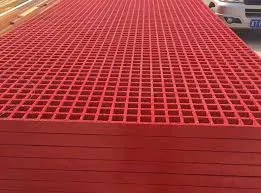
-
 Afrikaans
Afrikaans -
 Albanian
Albanian -
 Amharic
Amharic -
 Arabic
Arabic -
 Armenian
Armenian -
 Azerbaijani
Azerbaijani -
 Basque
Basque -
 Belarusian
Belarusian -
 Bengali
Bengali -
 Bosnian
Bosnian -
 Bulgarian
Bulgarian -
 Catalan
Catalan -
 Cebuano
Cebuano -
 China
China -
 China (Taiwan)
China (Taiwan) -
 Corsican
Corsican -
 Croatian
Croatian -
 Czech
Czech -
 Danish
Danish -
 Dutch
Dutch -
 English
English -
 Esperanto
Esperanto -
 Estonian
Estonian -
 Finnish
Finnish -
 French
French -
 Frisian
Frisian -
 Galician
Galician -
 Georgian
Georgian -
 German
German -
 Greek
Greek -
 Gujarati
Gujarati -
 Haitian Creole
Haitian Creole -
 hausa
hausa -
 hawaiian
hawaiian -
 Hebrew
Hebrew -
 Hindi
Hindi -
 Miao
Miao -
 Hungarian
Hungarian -
 Icelandic
Icelandic -
 igbo
igbo -
 Indonesian
Indonesian -
 irish
irish -
 Italian
Italian -
 Japanese
Japanese -
 Javanese
Javanese -
 Kannada
Kannada -
 kazakh
kazakh -
 Khmer
Khmer -
 Rwandese
Rwandese -
 Korean
Korean -
 Kurdish
Kurdish -
 Kyrgyz
Kyrgyz -
 Lao
Lao -
 Latin
Latin -
 Latvian
Latvian -
 Lithuanian
Lithuanian -
 Luxembourgish
Luxembourgish -
 Macedonian
Macedonian -
 Malgashi
Malgashi -
 Malay
Malay -
 Malayalam
Malayalam -
 Maltese
Maltese -
 Maori
Maori -
 Marathi
Marathi -
 Mongolian
Mongolian -
 Myanmar
Myanmar -
 Nepali
Nepali -
 Norwegian
Norwegian -
 Norwegian
Norwegian -
 Occitan
Occitan -
 Pashto
Pashto -
 Persian
Persian -
 Polish
Polish -
 Portuguese
Portuguese -
 Punjabi
Punjabi -
 Romanian
Romanian -
 Russian
Russian -
 Samoan
Samoan -
 Scottish Gaelic
Scottish Gaelic -
 Serbian
Serbian -
 Sesotho
Sesotho -
 Shona
Shona -
 Sindhi
Sindhi -
 Sinhala
Sinhala -
 Slovak
Slovak -
 Slovenian
Slovenian -
 Somali
Somali -
 Spanish
Spanish -
 Sundanese
Sundanese -
 Swahili
Swahili -
 Swedish
Swedish -
 Tagalog
Tagalog -
 Tajik
Tajik -
 Tamil
Tamil -
 Tatar
Tatar -
 Telugu
Telugu -
 Thai
Thai -
 Turkish
Turkish -
 Turkmen
Turkmen -
 Ukrainian
Ukrainian -
 Urdu
Urdu -
 Uighur
Uighur -
 Uzbek
Uzbek -
 Vietnamese
Vietnamese -
 Welsh
Welsh -
 Bantu
Bantu -
 Yiddish
Yiddish -
 Yoruba
Yoruba -
 Zulu
Zulu
Innovative FRP Solutions for Desalination Piping and Fittings in Water Treatment Systems
FRP Desalination Piping and Fitting A Sustainable Solution
The increasing demand for fresh water has made desalination an essential process in many parts of the world. As the desalination industry grows, so does the need for reliable and durable materials that can withstand harsh environments. Among the various options available, Fiberglass Reinforced Plastic (FRP) piping and fittings have emerged as an optimal choice for desalination plants.
FRP is a composite material made from a polymer matrix reinforced with fiberglass. This combination provides high strength-to-weight ratios and excellent corrosion resistance, making it ideal for saline environments found in desalination facilities. The exposure to saltwater can significantly degrade many traditional materials, but FRP's resistance to corrosion prolongs its lifespan and reduces maintenance costs, ensuring a more sustainable operation.
One of the primary advantages of FRP piping is its lightweight nature. This feature simplifies the installation process and reduces labor costs, as less manpower and equipment are required to handle and install the piping. Moreover, FRP can be molded into various shapes and sizes, providing flexibility in design and enabling the system to meet diverse operational requirements.
frp desalination piping and fitting

In addition to its mechanical properties, FRP offers thermal insulation benefits that help maintain the temperature of the fluids being transported. This can be particularly advantageous in desalination plants where energy efficiency is paramount. The insulating properties contribute to reducing energy consumption, thus supporting the overall sustainability goals of these facilities.
The design of FRP fittings is equally important in ensuring the integrity and efficiency of the desalination process. High-quality FRP fittings, such as elbows, tees, and valves, are critical in directing the flow of seawater and treated water throughout the system. Their robust construction minimizes the risk of leaks and failures, which is crucial given the high pressures involved in desalination processes.
Additionally, FRP systems can be customized to meet specific operational conditions, including varying pressure, temperature, and chemical exposure levels. This customization capability allows engineers to tailor solutions that maximize the plant's efficiency and effectiveness.
As global water scarcity continues to be a pressing issue, the adoption of FRP piping and fittings in desalination plants represents a significant step toward sustainable water management. By utilizing this advanced material, desalination facilities can enhance their operational efficiency while minimizing environmental impacts, ultimately contributing to a more sustainable future for water resource management.









